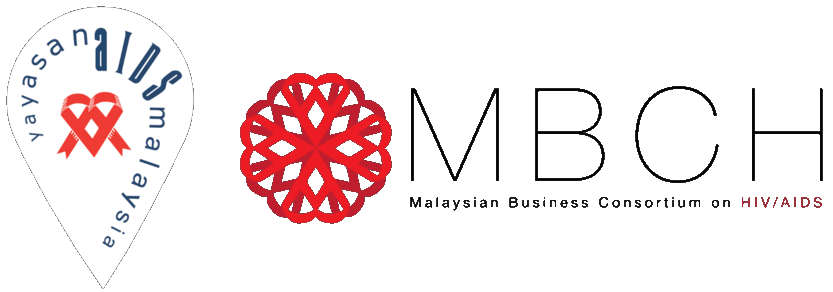he Human Immunodeficiency Virus (HIV), which causes AIDS, was first identified in 1983. Since then, HIV has spread around the world, causing one of the most severe global epidemics of modern time. The initial response was led by the public and non-profit sectors, which have mobilised increasing human and financial resources to combat the disease as well as the impact that HIV/AIDS is having on its workforce. The impact of HIV/AIDS can be managed by implementing a formal HIV/AIDS policy to reduce the risk of contracting HIV/AIDS at the workplace.
MBCH MEMBERSHIP
THE BUSINESS BENEFITS OF HIV/AIDS WORKPLACE POLICY
Implementing the HIV/AIDS workplace policy in your organisation has the following benefits:
Better quality of life for employees with HIV/AIDS
Increase productivity
Increase awareness and knowledge of HIV/AIDS among employees
Reduce stigma and discrimination towards infected / affected employees
Increase and improve the value of humanity
Add significant value to organisations
What You Get
The Malaysian Business Consortium on HIV/AIDS (MBCH) is pleased to invite your esteemed company to benefit from our MBCH programme as a member. By becoming a member, you will enjoy:
Tax exemption receipt
HIV and AIDS training for your employees
Policy guidelines
Access To Workplace Policy Consultation With MAF
Join MBCH
Sign up as a Gold or Platinum member to foster a supportive, conducive environment for the management of HIV/AIDS and protection of rights of employees living with HIV at your workplace
GOLD
RM10K
ANNUAL PROGRAMME
- Tax exemption receipt of RM10,000
- HIV/AIDS-related occupational safety and health awareness trainings; Four (4) sessions on the basics of HIV/AIDS, two (2) on sexual and reproductive health
- Unlimited expert consultation with your company’s human resources team on the development of a HIV/AIDS workplace policy
PLATINUM
RM20K
THREE (3)-YEAR PROGRAMME
- Tax exemption receipt of RM20,000
- HIV/AIDS-related occupational safety and health awareness trainings; Six (6) sessions on the basics of HIV/AIDS, two (2) on sexual and reproductive health, two (2) on other related occupational safety and health awareness topics.
- Unlimited expert consultation with your company’s human resources team on the development of a HIV/AIDS workplace policy
- Credit mention of partnership in relevant communication and publicity materials
HIV AND BUSINESS
THE IMPACT OF HIV ON BUSINESSES
Employers everywhere are asking themselves whether HIV/AIDS has a negative impact on business. The answer is YES.
HIV/AIDS is not purely a health issue; it is also an issue that goes to the very core of business practices. HIV/AIDS has a negative impact on both the business environment (macroeconomic impact) and on the enterprise directly (microeconomic impact). To sum up, the HIV/AIDS epidemic is likely to result in increased costs and declining productivity for firms, which ultimately will lead to declining profits.
To address this concern, Malaysian AIDS Foundation (MAF) has driven the formation of the Malaysian Business Consortium on HIV/AIDS (MBCH), where businesses come together to mitigate the impact of HIV & AIDS in the workplace and also to create as many safe spaces as possible for employees and professionals living with HIV to thrive and succeed.
MBCH is supported by the Department of Occupational Safety & Health (DOSH) of Ministry of Human Resources Malaysia and Ministry of Health Malaysia in line with their National Strategic Plan for Ending AIDS 2016 – 2030.
HIV WORKPLACE POLICY
Many large and small businesses address HIV in their workplace policies and programmes to promote good health — either directly or through general policies and initiatives. These programmes can be also be cost-effective and can save businesses money. By educating yourself and your employees now, you can potentially reduce the financial impact, legal implications, work disruptions and other effects that HIV can have on a business when it is not prepared.
OVERVIEW OF HIV WORKPLACE POLICY
Aworkplace policy is the framework of commitment (work plan) for ACTION to reduce the spread of HIV/AIDS and manage its impact in the workplace. The HIV/AIDS workplace policy should address essential issues, including non-discrimination, fair employment, management commitment, confidentiality, communication of information and prevention.
Currently, there is no compulsion to have a HIV and AIDS policy at the workplace, although businesses are encouraged to adopt the Code of Practice on Prevention and Management of HIV and AIDS at the Workplace developed by the Department of Occupational Safety and Health Malaysia. This document underscores the value of having HIV and AIDS education at the workplace and more importantly, a non-judgmental and non-discriminatory work environment.

The Malaysian Business Consortium on HIV/AIDS (MBCH) was established to provide guidelines to employers and employees on appropriate and effective ways of preventing and managing HIV at the workplace, to promote education and awareness on HIV and AIDS, and to mobilise the private sector response to HIV and AIDS at the workplace.
© MALAYSIAN AIDS FOUNDATION 2019
